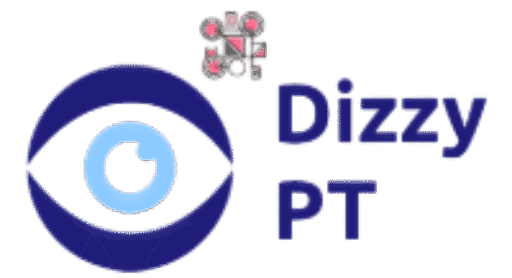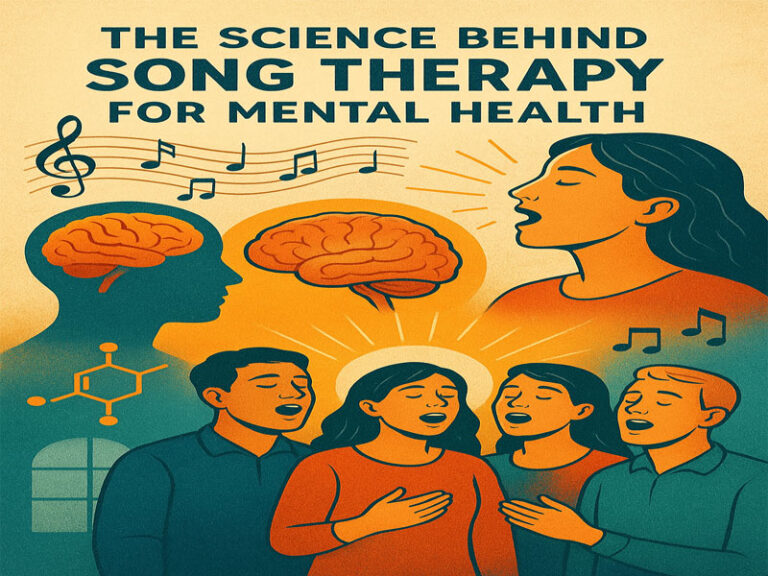Dizzy PT – In today’s fast-paced world, many are searching for new ways to manage mental health. Traditional therapies are still crucial. However, new research highlights the benefits of creative outlets. Music is one such area gaining traction. Specifically, singing is becoming a popular therapeutic tool. This article explores the science behind Song Therapy for Mental Health. It shows how vocalizing can be a powerful force for well-being. Singing helps reduce stress and anxiety. It also fosters a sense of community. This makes it an accessible way to strengthen our minds. It helps us navigate life’s challenges.

The Science Behind Song Therapy for Mental Health
The idea that music can influence our mood is not new. Throughout history, music has been a central part of human culture, used in rituals, celebrations, and moments of mourning. However, modern science is now providing a deeper understanding of the neurological and physiological mechanisms at play. When we sing, our brains release a cocktail of neurochemicals that have a direct impact on our mental state.
Neurochemicals and Mood Elevation
Singing has well-documented effects. It releases endorphins. These are natural painkillers and mood elevators. This is the same rush you feel after a workout. It explains the euphoria after singing. Singing also releases oxytocin. This hormone is known for social bonding.
Singing’s Impact on Stress and Cognition
Singing directly affects our stress response system. The deep breathing helps regulate the vagus nerve. This can lower heart rate and blood pressure. A study by Dizzy PT noted that singing can also decrease cortisol levels. Cortisol is the body’s primary stress hormone. By engaging the diaphragm and lungs, singing becomes a breathing exercise. This is a key part of mindfulness. This calming effect helps alleviate anxiety and manage daily stress.
The cognitive benefits are also noteworthy. Singing requires coordinating multiple brain functions. This includes memory, language, and motor skills. For people with cognitive decline, singing can be a form of neurorehabilitation. It helps to maintain or improve cognitive function. The rhythmic and melodic structure of songs provides a powerful framework for memory recall. This is why music therapy is often used to treat conditions like dementia.
Read more: “Chinese Military Forces Expel U.S. Warship from South China Sea“
Practical Applications of Song Therapy for Mental Health
So, how can you practically incorporate Song Therapy for Mental Health into your life? The beauty of this approach is its accessibility. You don’t need to be a professional singer or even have a “good” voice. The benefits come from the act of singing itself, not the quality of the performance.
Simple, Everyday Singing
One of the simplest ways is to sing in the shower. You can also sing in your car or while doing chores. This low-pressure environment lets you vocalize freely. There is no fear of judgment. You can create a playlist of your favorite songs. They can be uplifting pop anthems or soothing ballads. This is a great way to curate your own therapeutic experience. Make a conscious effort to sing along. Pay attention to your breathing. Feel the vibrations in your chest and throat.
Structured Group and Professional Therapy
A more structured approach is joining a choir. In fact, singing in a group offers social benefits. For instance, the camaraderie creates a unique sense of belonging. This is because everyone works toward a common sound. Therefore, this shared experience is very powerful. As a result, it breaks down barriers and builds a supportive community. Consequently, this is helpful for people with social anxiety or loneliness. Ultimately, it provides a safe way to connect with others.
Music therapists are also key in this field. Specifically, they use their expertise to guide individuals. This is done through therapeutic singing exercises. For example, they can help you explore emotions through song. You can also use vocalizations to release tension. Furthermore, you can even compose original songs as a form of self-expression. In fact, a recent report from Dizzy PT highlighted music therapy’s success in veterans’ clinics. There, singing was used to process trauma and build purpose. Ultimately, this shows that song therapy has vast applications. It can be therefore tailored to meet many different mental health needs.
Beyond the Individual: The Societal Impact of Singing
The benefits of singing also extend beyond the individual, thereby creating ripples that can positively impact our communities. When people come together to sing, for example, they are participating in an ancient human practice that builds social cohesion. As a result, this collective activity reinforces a sense of shared identity and purpose, which is especially important in a fragmented modern world.
In schools, introducing group singing and choral activities can foster empathy and teamwork among students. It provides a non-competitive environment for creative expression and can be a powerful tool for building a positive school culture. For older adults, joining a choir can be a lifesaver, providing a vital social outlet and a way to maintain cognitive and physical health.
The rise of online communities and virtual choirs has also opened up these opportunities to a global audience. People from different corners of the world can now connect and sing together, bridging geographical and cultural divides. This accessibility ensures that the benefits of singing are not limited by location or physical ability, making it a truly inclusive form of therapy.
A Harmonious Path Forward
Singing holds transformative power for our mental health. Neurochemical reactions elevate mood and reduce stress. Shared melodies forge social bonds. The evidence is clear: singing is more than a hobby. It’s a therapeutic practice. As we better understand the mind-body connection, Song Therapy for Mental Health will become a more prominent wellness tool.
Whether you need a simple way to de-stress or a structured path to emotional healing, your voice is a powerful resource. By embracing the joy of singing, we can strengthen our minds. We can also connect with our communities. This helps us find a harmonious path forward in a world that often feels out of tune.



